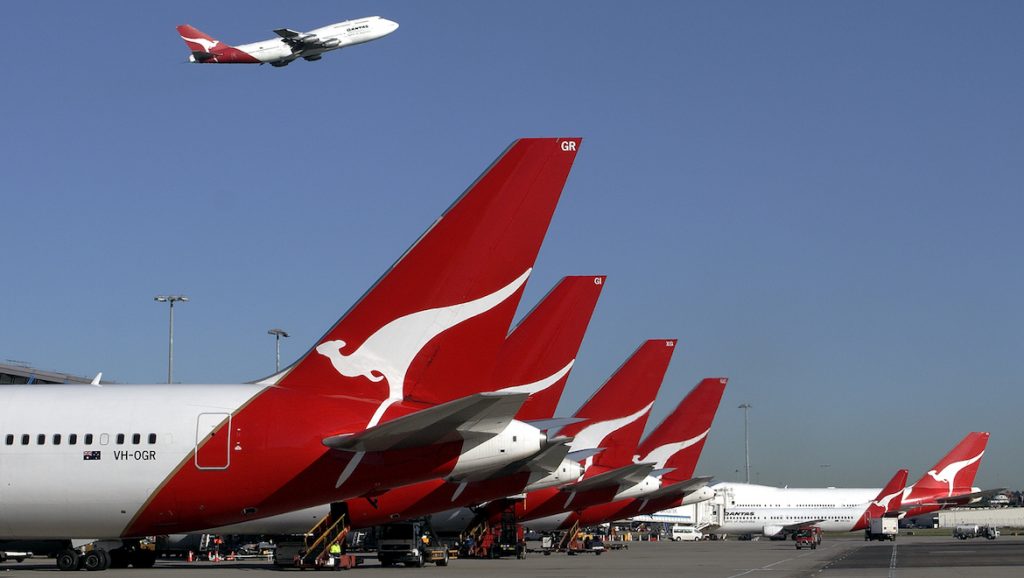
A Qantas flight dispatch duty manager has told a Senate committee how COVID stand-downs caused her to eat just one meal a day, work five jobs and cancel her medical insurance.
“My health is suffering because I’m now often working over 70 hours a week just to survive and pay the bills,” said Tina Courtenay. “My casual work has no sick leave and there is no fatigue management. Like everyone else in this situation, I am exhausted.”
Courtenay was one of a number of aviation workers giving evidence to the committee investigating the ‘Future of Australia’s aviation sector, post COVID-19’ on Wednesday. She was also speaking as a representative of the Australian Services Union.
“The financial and personal impact has been enormous,” she said. “At one point in the last year, I had five casual jobs. I currently have four casual jobs on top of the Qantas stand-up stand downs. I have done multiple courses in an attempt to upskill to secure better work.
“I live as frugally as I can. I have cancelled my health and other insurances to cut back on expenses. When this first started I was eating one meal a day. I haven’t bought one piece of clothing in a year or had a haircut. I have used New South Wales state government electricity vouchers.
“Sydney is an incredibly expensive city and even the original JobKeeper rate was nowhere near enough to live on. I have withdrawn all the super I can to pay my existing expenses.
“In 2002, I bought an investment property to set myself up for independent retirement, so not to be on the age pension. My tenant lost their job straightaway at the start of COVID and moved out. The property was empty for six weeks.
“I had to reduce the rent by $100 a week to be able to attract another tenant, so I was financing both that property and the house that I live in by myself. I am now in the position of having to sell one of the properties just to be able to survive, even though this means effectively setting myself up for poverty in my old age and being dependent on the age pension.”
Courtenay urged the government to do more to support Qantas, which is facing losing access to JobKeeper payments at the end of March.
“Qantas is the safest airline in the world, and the reason for that is the vast experience of the staff. We cannot afford to lose that experience, and these people are walking out the door as soon as they can get better work. How do you want to feel the next time you travel on Qantas?
“Do you want to have that experience all the way down the line or do you want to sit down and think, ‘I wonder what’s happening here?’ If the government wants the security of a national airline, the workers deserve the security of their jobs.”
Her comments came on the same day as the ASU said a survey of 500 of its members found nearly three-quarters of aviation workers would not be able to support their family if JobKeeper is scrapped.
Earlier this month, Virgin Australia chief executive Jayne Hrdlicka told an earlier hearing of the committee that ending JobKeeper for the aviation industry would be “devastating”.
Hrdlicka added it might be “impossible” for the business to “bear the financial cost” of operating in a market where borders are opening and closing without warning.
“We cannot predict when it will end,” said Hrdlicka. “We don’t know whether we have two more years to go. We don’t know whether we have two weeks.”
Hrdlicka’s plea was made shortly after an industry open letter was sent to the Prime Minister urging an ‘AviationKeeper’ payment.
It was signed by the businesses Virgin Australia, Menzies, dnata, Gate Gourmet and Swissport and the unions the TWU, ETU, AMWU, ALAEA, FAAA, AWU, VIPA and AFAP.
The JobKeeper package was introduced to provide coronavirus-effected business with an initial $1,500 per employee, per fortnight.
Companies are then legally obliged to pass that payment onto workers in a bid to keep the economy active during the pandemic.
However, the scheme has proved problematic for much of the aviation industry.
Many airport workers, such as those at Newcastle, are locked out of the financial package because their firms are council-owned; while staff at dnata were similarly told they were no longer eligible because their company is owned by a foreign government.
















BANKS
says:The writing is definitely on the wall, hoped the government is watching and listening.
Come the end of April there might not be much of an aviation sector left.
Michael Beech
says:Well, I think job Keeper should stay until all international flights start again, an everything is back before covid 19,and I think that’s fair way to go about it..
Bill O'Really.
says:Good ol AJ will take care of her. He is a real people person, quality understanding of what is important to everyone, not just himself. Just ask anyone in Qantas.
Kris
says:Very unfortunate and a terrible situation for you and many others .
The same thing happened to the taxi/limo industry families when rideshare was introduced to Australia and nobody supported our industry or cared. Airlines where also supporting rideshare.
I hope things improve for you and your fellow workers.
Linda
says:AviationKeeper? You’re kidding? Do aviation workers think they’re the only ones in this position? Are they so conceited as to believe themselves deserving of special treatment? That Qantas is such a poor little business that it couldn’t survive without mooching off taxpayers? How about this for a change Qantas: cut exec salaries in half and start putting REAL workers first for a change!